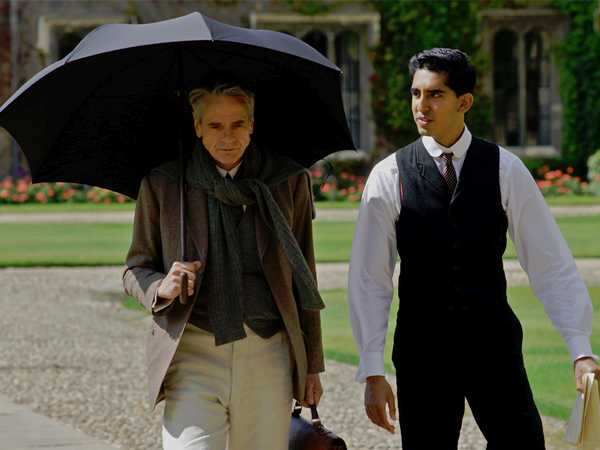Movie Review: The Man Who Knew Infinity
Most folks usually start behaving like Ishaan Awasthi from Taare Zameen Par when it comes to the subject of mathematics. It’s not like the world is suffering from mass levels of dyslexia, but maths does have a bit of an intimidating reputation. And those proficient at maths invariably are perceived as anti-social odd-balls who’d rather be scribbling away on pages, walls, windows and sometimes in the air too. S Ramanujan was one such character, only he existed way back before World War I took place. That’s roughly a hundred years ago. But a century ago, this man from India managed to rock the very foundations of Cambridge University in England. And he did so with his intuitive genius at mathematics. Those who can put two and two together can guess that The Man Who Knew Infinity is the story of this overachieving Indian hero in the early 1900s.
Back then, cameras were part of royalty and people had less distractions and a lot of time to think and process. And in his spare-time Ramanujan scribbled on the walls of a Madras temple, some groundbreaking maths formulae. He was unemployed so he had more time than most others. Most of his work also got into his notebook, a part of which he shared with the Cambridge fellow GH Hardy. And the rest is history and also part of the narrative of The Man Who Knew Infinity. The way Hardy gives Ramanujan a chance to put his foot into the Cambridge door of fellowship is what the film is about. The writer and director Matt Brown has chosen to intertwine two aspects of Ramanujan’s life, his humble family life in India and his struggles to get recognition in the UK. The idea of the movie is to project Ramanujan as a genius at par with the likes of Isaac Newton. While that may seem like an exaggeration maths aficionados will vouch for the fact that it’s a fair estimate of the man and his achievements. Brown’s adaptation of Ramanujan’s life builds on the idea that he was a spontaneous and intuitive artist in the garb of a mathematician. Admittedly, Ramanujan’s source of mathematical wonder was God and he got all his assumptions to complex formulas by thinking about God. The fascinating part of the story deals with Hardy, an atheist, teaching Ramanujan the science of proofs in maths. So when you already have the answer, for the world to comprehend the achievement, you have to show them proof. You have to work it out in simple steps that make the whole exercise seem methodical and organised. You have to prove to the world that you are a genius, before you can stake a claim to the title.
Brown does well to tell Ramanujan’s story in England. But when it comes to his beginnings in India, the writing and the direction just seem a little out of depth. It’s like he’s catering to an image of what Madras was as opposed to what it should’ve actually been. It’s nothing offensive, like the land of snake charmers, elephants and towel heads. But when you see lower middle-class women wearing expensive silk sarees on day-to-day basis you have to nod in disbelief. The other factor that limits the impact of the movie is the casting of Dev Patel as Ramanujan. Not that Patel does a bad job, but he’s just not in the right league of actors required to play the man. You can picture Ramanujan as a cross between Russel Crowe’s John Nash from A Beautiful Mind and Matt Damon’s Will Hunting from Good Will Hunting. So in essence you need an actor of that calibre. Jeremy Irons, who plays Ramanujan’s chief benefactor and mentor Hardy is in that league. He’s the best thing about the film. And you can really tell the difference between his efforts and that of Patel’s. Perhaps a more rounded actor would’ve done more for Ramanujan’s portrayal.
But the movie works. It tells an important story and it does make a meal out of the subject. Ramanujan’s tale needs an audience because in terms of achievement his contribution to the world of mathematics was perhaps greater than that of Sachin Tendulkar’s to cricket. But where Ramanujan is considered a veritable hero in the West, but back home he’s almost like an afterthought when it comes to the Hall Of Fame. At best his heroics are reserved for school board room discussions and talk-show panels on DD Gyan Darshan. And that needs to change. This man is a part of history and his legacy is on par with the likes of CV Raman and Homi Bhabha. It’s a great story. One that deserves an audience.
